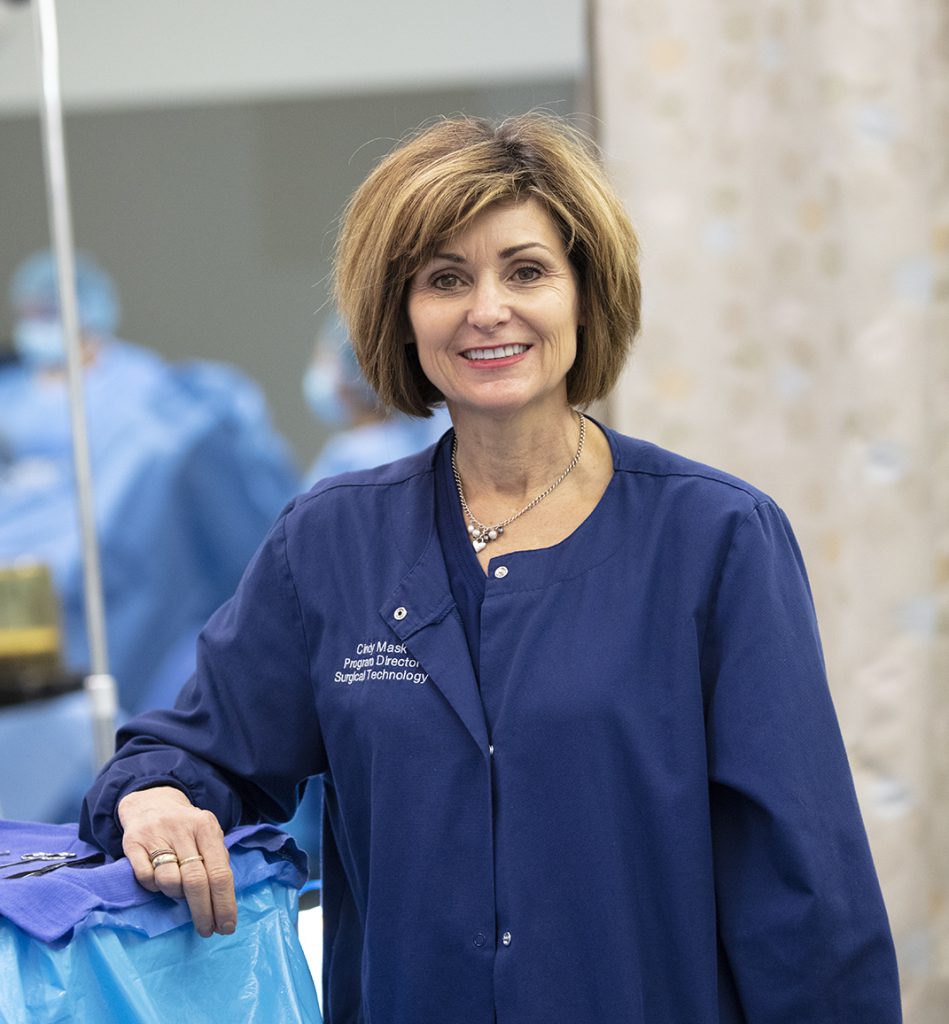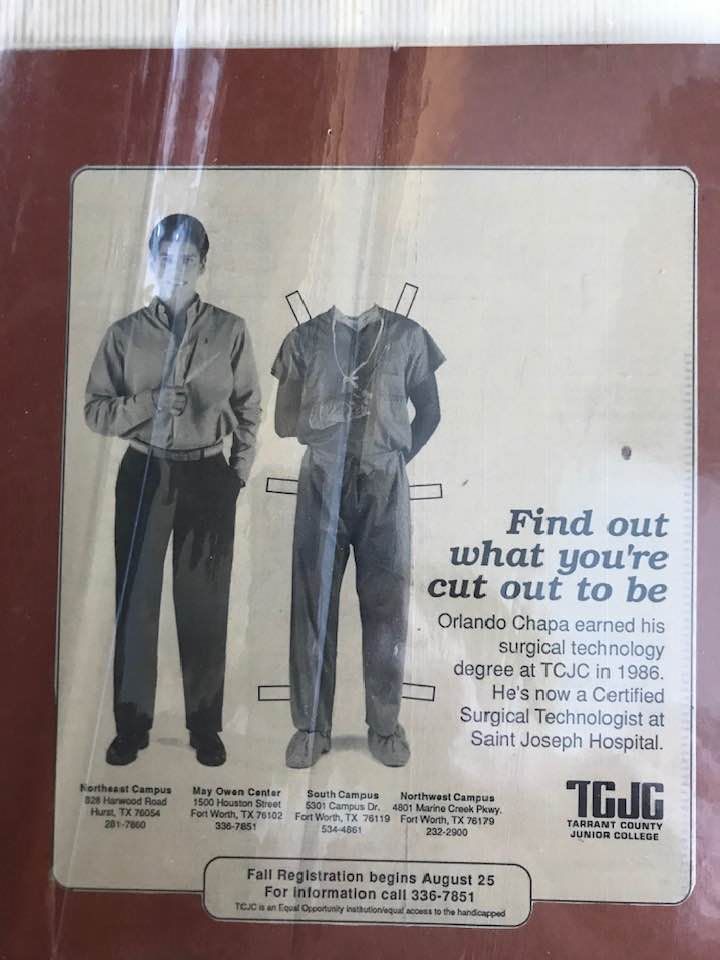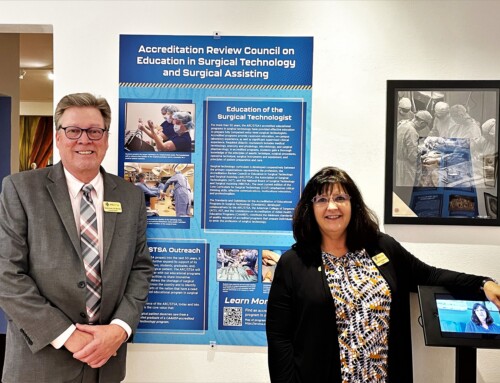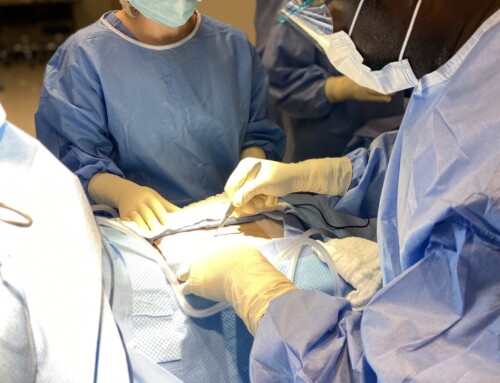
The year was 1969. The Beatles had given their last public performance, Neil Armstrong had made one giant leap for mankind, and (back on earth) the surgical technology program at Tarrant County College (TCC), newly established, was making small steps of its own.
The program at TCC – then Tarrant County Junior College (TCJC) – got off to a modest start in 1969, with the first cohort of just two students. The following year, that number grew to five, and today the program accepts about 30 students each year.
TCC’s program has seen a number of changes in its 50 years – whether that’s the technology used in the classroom or moving to a brand new campus nearly 10 years ago. But of all the changes the program has experienced, perhaps most significant is the state requirement for accreditation. In 2009, Texas House Bill (HB) 643 was passed, stating all surgical technologists entering the practice after September 1, 2009, must successfully complete an accredited educational program for surgical technologists and hold and maintain certification, in order to be employed.

Cindy Mask, surgical technology program director at TCC, explains that early graduates of TCC did not need to be certified to start working in the field. While students could sit for the Association of Operating Room Technicians (AORT) exam at the time, it was not legally required in Texas; many surgical technologists had been trained on the job.
“I’m glad we’ve evolved in our profession,” Mask explains, noting how important it is for students to have a well-rounded education with classes like microbiology, anatomy and physiology, sterile technique, or infection control.
In fact, TCC’s surgical technology program will continue to evolve this year. “The class of 2020 will graduate and be the first with an associate degree,” Mask proudly explains.

In conversations with educators across the country, she understands anecdotally that the associate degree program helps provide a foundation for students. Having gone through core classes first, students have time to understand the rigor of the program. Mask is hopeful this is the case for her students, too, and that the degree ultimately helps to elevate the profession further.
Mask, her colleagues, and TCC alumni have much to celebrate this year. In early March, they will mark the program’s golden anniversary at the Texas State Assembly of the Association of Surgical Technologists’ annual meeting. Along with remarks from TCC’s chancellor, Mask and her colleague will give a presentation, “TCC: Then and Now.” In preparation for this, Mask has found a number of items from the program’s early days, including a carousel slide projector, original suture cards, glass saline bottles and anesthesia masks made of latex. “We’re going to put all of these items in a glass cabinet, because the things we’re finding are priceless,” Mask says, noting the importance of preserving the program’s history.
Programs across the country celebrating their own milestones can take a page from TCC’s book. While it’s important to look to the future, it’s just as impactful to reflect on the past, preserve history for future generations, and celebrate the accomplishments that have led to the progress of today. Equal parts attention to past and future contribute to a program’s foundation that will allow it to flourish for years to come.
Is your program celebrating a milestone this year? ARC/STSA wants to hear about it! Please email ARC/STSA Director of Education Services, Christy Baily-Byers, at christy.bailybyers@arcstsa.net.



